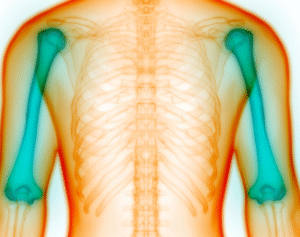Unveiling Hope: Exploring Recovery Possibilities in Fibromyalgia
Unveiling Hope: Exploring Recovery Possibilities in Fibromyalgia
Fibromyalgia, a chronic condition characterized by widespread musculoskeletal pain, fatigue, and tenderness, has long been considered a lifelong ailment with no definitive cure. However, emerging narratives and studies suggest that recovery, or significant remission, is possible for some individuals. This article delves into the multifaceted aspects of fibromyalgia recovery, exploring personal experiences, medical perspectives, and lifestyle modifications that contribute to improved well-being.
Understanding Fibromyalgia
Fibromyalgia affects approximately 2% of the population, predominantly women. Symptoms include chronic widespread pain, sleep disturbances, cognitive difficulties (often referred to as “fibro fog”), and heightened sensitivity to stimuli. The exact cause remains elusive, but factors such as genetics, infections, and physical or emotional trauma are believed to play roles.
Personal Narratives of Recovery
Several individuals have shared their journeys from debilitating symptoms to improved health, providing insights into potential recovery pathways.
Embracing Lifestyle Changes
Some have found relief through holistic approaches, including dietary adjustments, stress management, and gentle exercise. For instance, a study highlighted five women who reported recovery by resisting the “sick role” and using pain as a signal to manage stress, leading to altered life goals and daily routines .
Functional Medicine and Coaching
Functional medicine practitioners often collaborate with health coaches to address underlying issues contributing to fibromyalgia symptoms. This personalized approach focuses on identifying triggers, improving gut health, and implementing sustainable lifestyle changes
Brain Retraining Techniques
Innovative methods like brain retraining have shown promise. By targeting the limbic system, which processes emotions and pain, individuals have reported significant symptom reduction. One such case involved a person who, after years of chronic illness, utilized neuroplasticity exercises to regain health .
Medical Insights on Recovery
While fibromyalgia is generally considered chronic, some studies suggest that remission is achievable. Research indicates that up to 47% of participants no longer met the criteria for fibromyalgia 1–2 years post-diagnosis, with about 44% maintaining this status after 11 years .
It’s important to note that “recovery” may not imply a complete absence of symptoms but rather a significant reduction that allows for improved quality of life.
Lifestyle Modifications Supporting Recovery
Adopting certain lifestyle changes can play a crucial role in managing and potentially alleviating fibromyalgia symptoms:
- Regular Physical Activity: Engaging in low-impact exercises like yoga, swimming, or walking can improve flexibility and reduce pain.
- Balanced Diet: Consuming anti-inflammatory foods and avoiding processed items may help manage symptoms.
- Stress Management: Techniques such as meditation, deep breathing, and cognitive-behavioral therapy can mitigate stress-related flare-ups.
- Sleep Hygiene: Establishing a consistent sleep routine and creating a restful environment can enhance sleep quality.
Conclusion
While fibromyalgia remains a complex and chronic condition, the experiences of those who have achieved remission or significant symptom reduction offer hope. Through a combination of medical interventions, lifestyle adjustments, and innovative therapies, individuals can find pathways to improved health and well-being. It’s essential to consult healthcare professionals to tailor a comprehensive approach suited to individual needs.



